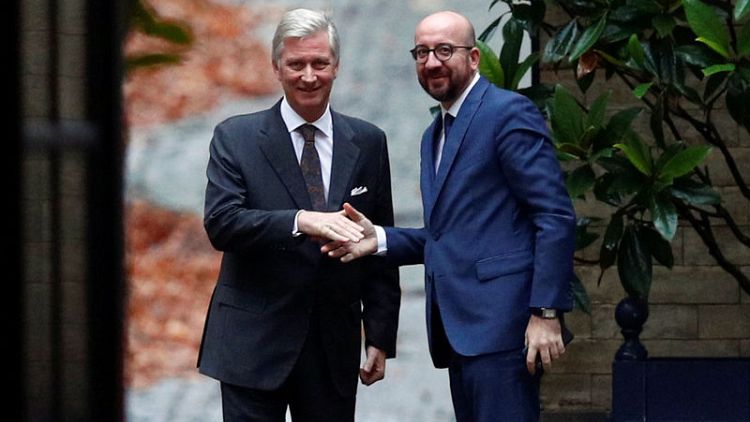By Philip Blenkinsop
BRUSSELS (Reuters) - Belgian King Philippe accepted the resignation of Prime Minister Charles Michel on Friday and requested his government stay on in a caretaker capacity for the coming months after his coalition split following an argument over migration.
After three days of consultations with party leaders, the palace said in a statement that the king had established a willingness to guarantee the country was managed until the next election, due on May 26. Belgium could have held an early election.
"The king asks political leaders and the institutions, in which he repeats his trust, to provide an appropriate response to the economic, budgetary and international challenges so as to meet the expectations of the population, such as on social and environmental issues," the palace said.
This is far from Belgium's first caretaker government. After the June 2010 elections, one was in place for 18 months until a ruling coalition was finally formed.
In its caretaker capacity, Michel's administration can only handle matters considered urgent. That could leave it unable to pass a planned reform of unemployment benefit and a 2019 budget.
Economists at ING said there were unlikely to be major short-term consequences, but longer term there were risks.
Belgium could face problems if there was an economic shock, such as from a hard Brexit. A number of necessary reforms, such as on pensions and the labour market, would also not be passed.
"It is unclear if these things will be picked up again by the next government. The election result might make it more difficult to form a stable reform-minded federal government," ING chief economist Peter Vanden Houte wrote on Wednesday.
Michel's government has been in trouble since the biggest party in his ruling coalition, the Flemish separatist N-VA, quit in a dispute over the signing of a U.N. accord on migration.
Michel at first relaunched his government as a minority administration reliant on support by opposition parties. On Tuesday, it became clear that he would not get that support and he tendered his resignation.
(Reporting by Philip Blenkinsop; Editing by Francesco Guarascio and Alison Williams)
